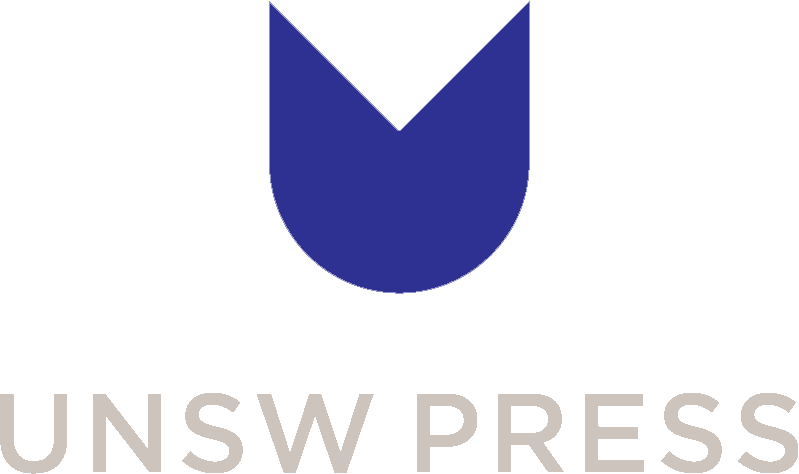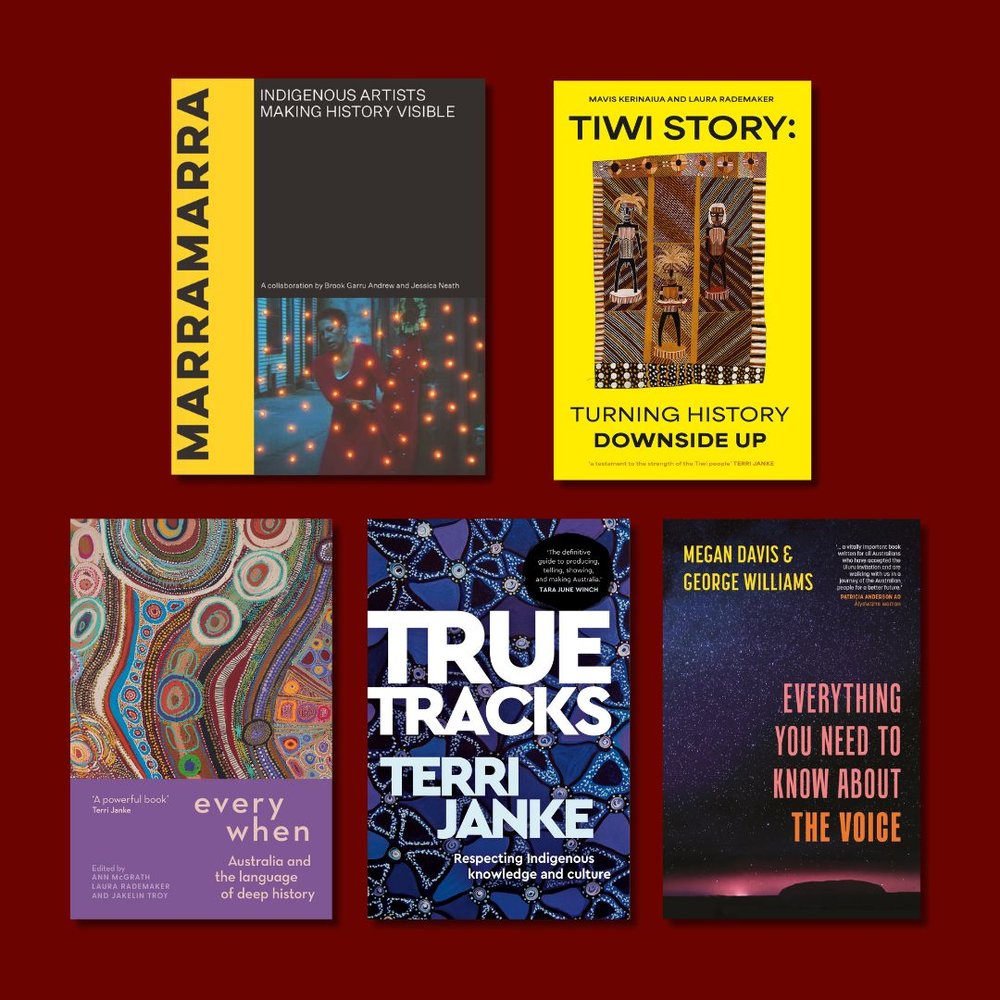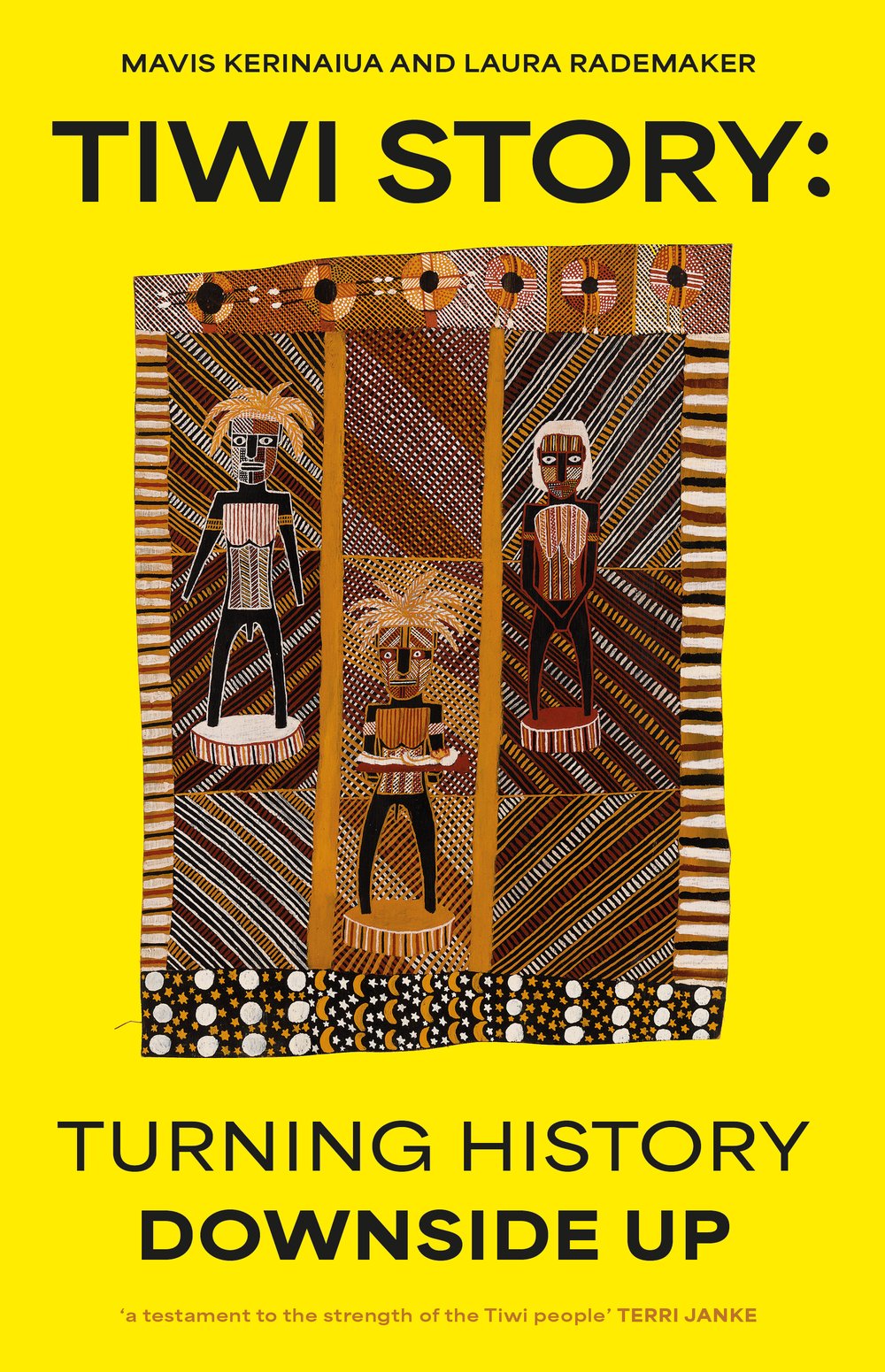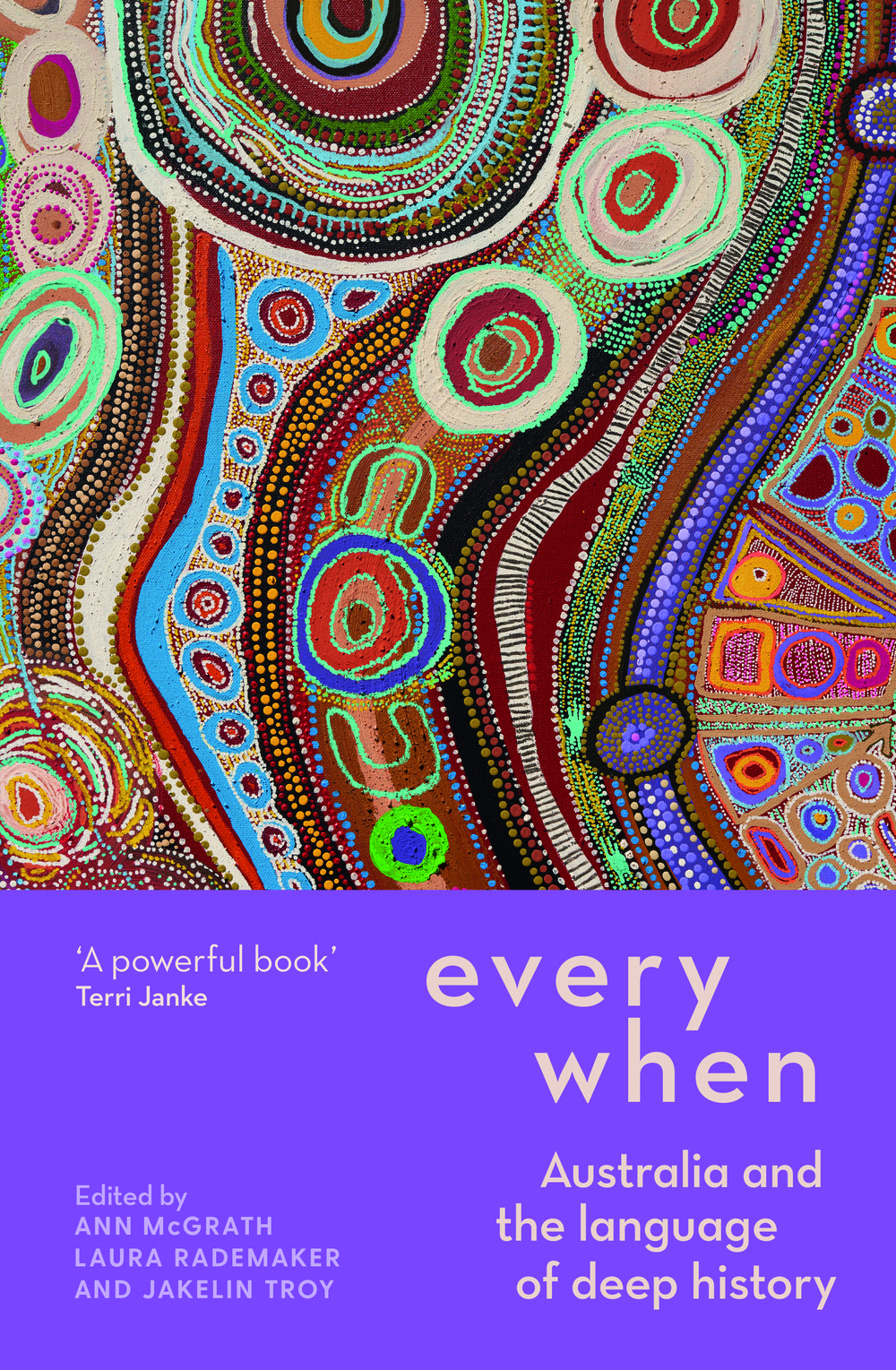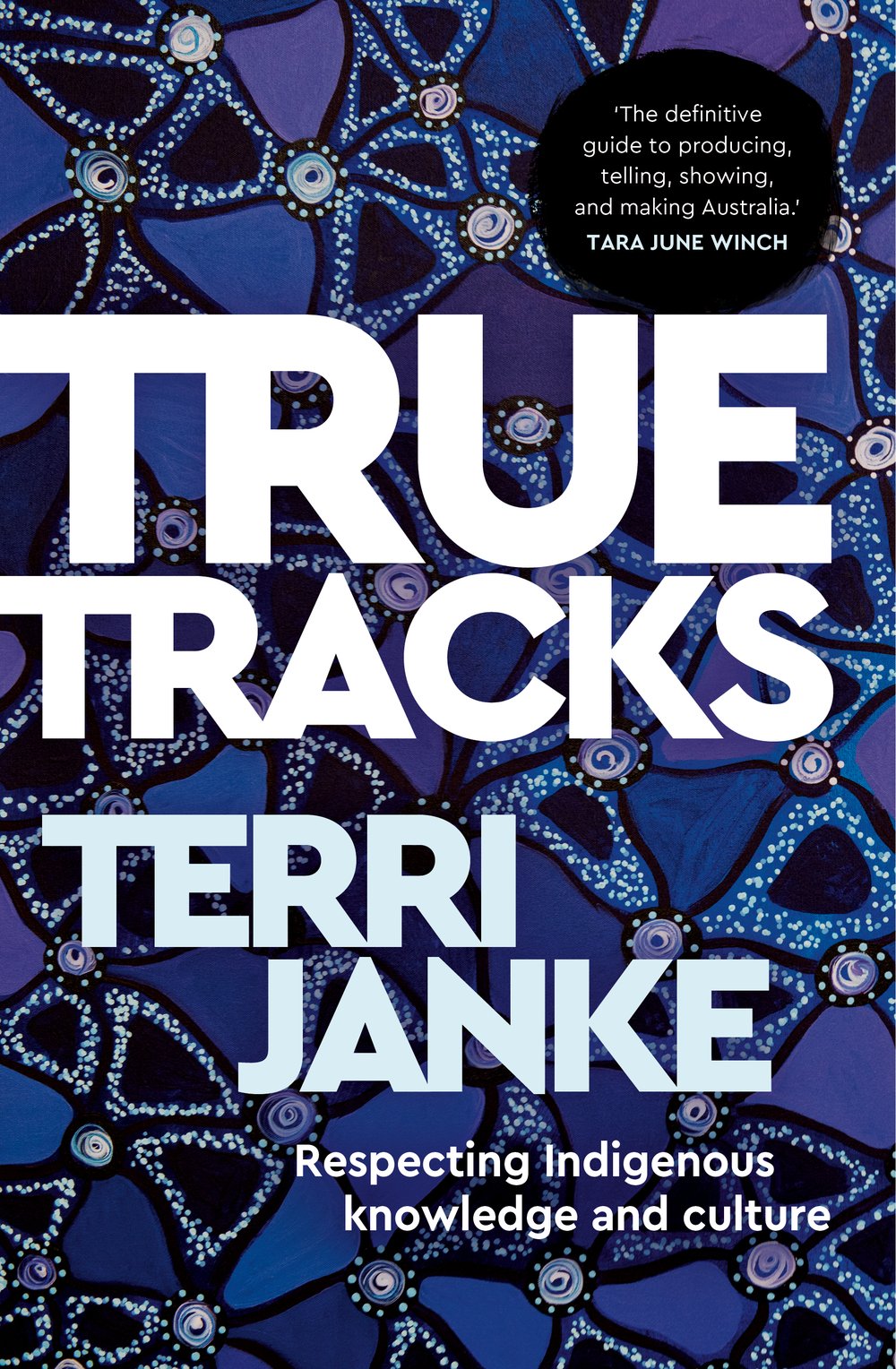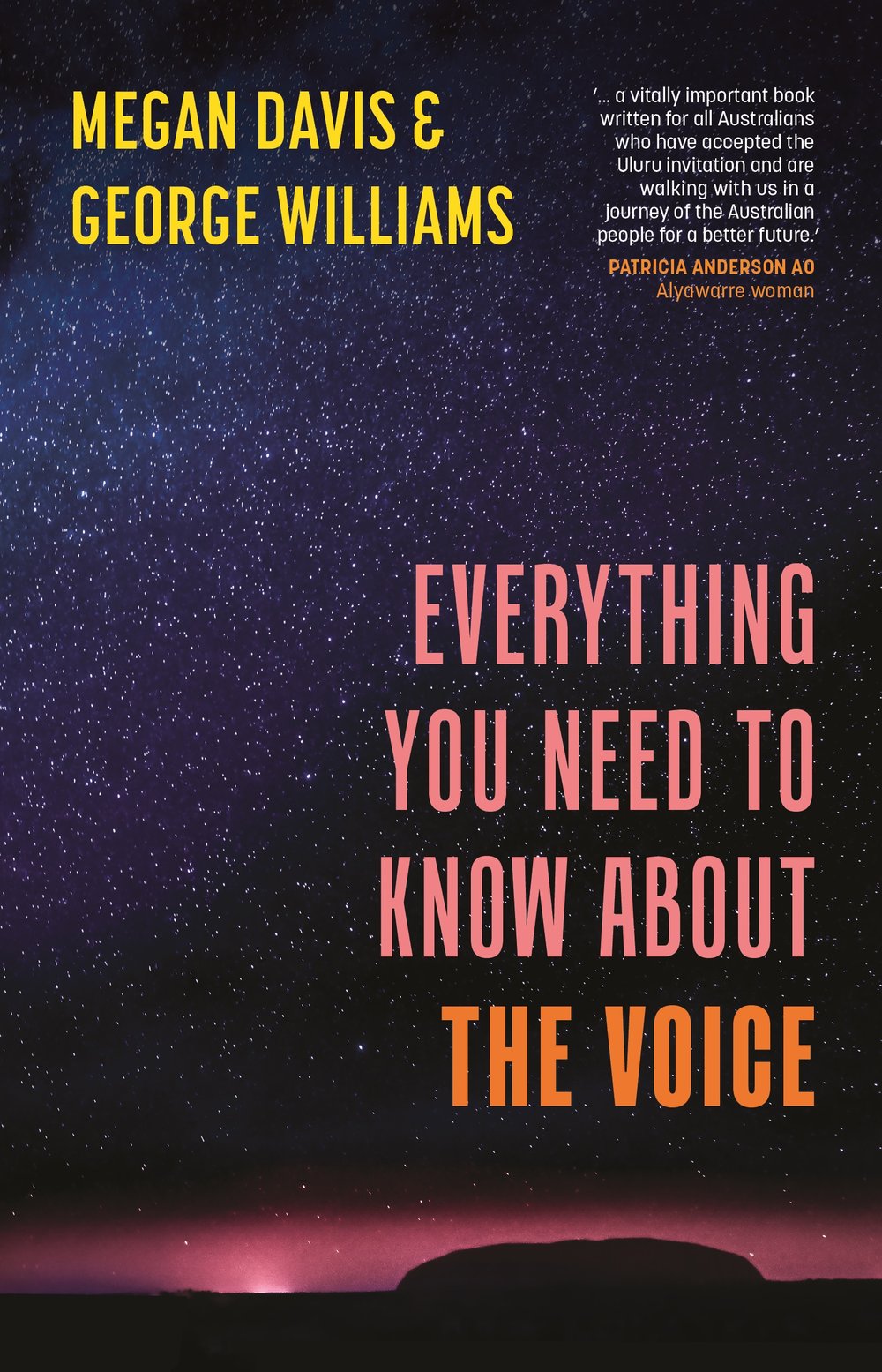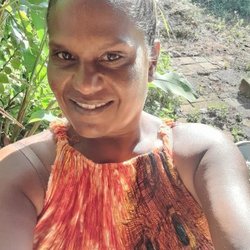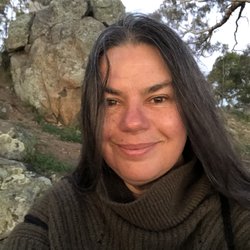NAIDOC Week will take place Sunday 7 July – Sunday 14 July and this year's theme is Keep the Fire Burning! Blak, Loud & Proud.
To celebrate this year's NAIDOC Week, we've put together a reading guide that features forthcoming and published books, highlighting the strength, endurance and vitality of First Nations people and culture, which are the foundations for the 2024 theme.
marramarra: Indigenous artists making history visible, by Brook Garru Andrew and Jessica Neath (out 1 November)
marramarra (a Wiradjuri word meaning to create, make or do) explores how contemporary Indigenous artists and their communities are revealing hidden histories and finding pathways to healing. marramarra shares conversations with leading contemporary artists, including Tuppy Ngintja Goodwin (Pitjantjatjara, Arrernte, Australia), Judy Watson (Waanyi, Australia), Rebecca Belmore (Anishinaabe, Canada), Nicholas Galanin (Tlingit, Alaska) and Pauliina Feodoroff (Skolt Sámi, Finland). Indigenous elders and knowledge holders also provide insights about important community projects, places of memory and history lessons about colonisation.
Tiwi Story: Turing history downside up, by Mavis Kerinaiua, Laura Rademaker
The Tiwi people have more than their fair share of stories that turn ideas of Australian history upside down.
The Tiwi claim the honour of defeating a global superpower. When the world’s most powerful navy invaded and attempted to settle the Tiwi Islands in 1824, Tiwi warriors fought the British and won. The Tiwi remember the fight,and oral histories reveal their tactical brilliance.
In Tiwi Story, Mavis Kerinaiua, Laura Rademaker and Tiwi historians showcase stories of resilience, creativity and survival.
Everywhen: Australia and the Language of Deep History, edited by Ann McGrath, Laura Rademaker and Jakelin Troy
Everywhen asks how knowledge systems of Aboriginal people can broaden our understanding of the past and of history. Indigenous ways of knowing, narrating, and re-enacting the past in the present blur the distinctions of time, making all history now, with questions of time and language at the heart of Indigenous sovereignty.
Edited by Ann McGrath, Laura Rademaker, and Jakelin Troy, this collection draws attention to every when showing us that history is not as straightforward as some might think.
True Tracks: Respecting Indigenous knowledge and culture, by Terri Janke
True Tracks is a groundbreaking work that paves the way for respectful and ethical engagement with Indigenous cultures. Using real-world cases and personal stories, award-winning Meriam/Wuthathi lawyer Dr Terri Janke draws on twenty years of professional experience to inform and inspire people working across many industries – from art and architecture, to film and publishing, dance, science and tourism.
What Indigenous materials and knowledge are you using? How will your project affect and involve Indigenous communities? Are you sharing your profits with those communities?
If we keep our tracks true, Indigenous culture and knowledge can benefit everyone and empower future generations.
Everything You Need to Know about the Voice, by Megan Davis and George Williams
Everything You Need to Know about the Voice, written by coauthor of the Uluru Statement from the Heart, Cobble Cobble woman Megan Davis, and fellow constitutional expert George Williams, is essential reading on the Voice to parliament and government, how our Constitution was drafted, what the 1967 referendum achieved, what it left unfinished and the Uluru Statement. It charts the journey of this nation-building reform from the earliest stages of Indigenous advocacy, explores myths and misconceptions and, importantly, explains how the Voice offered change that would have benefited the whole nation.
We also highly recommend you discover books published by our friends at:

